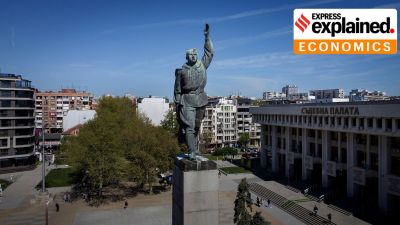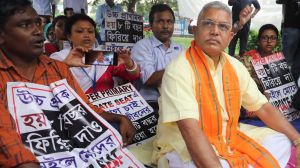Peering over Great Wall
China's response to the tsunami disaster shows the nation8217;s limitations as an aspiring superpower, despite its new and growing influenc...

China8217;s response to the tsunami disaster shows the nation8217;s limitations as an aspiring superpower, despite its new and growing influence in Asia. China8217;s offer of aid, if slightly belated, is sizable, given its often inward-looking history. But it is also a reminder that the world8217;s most populous country is still far from being the dominant power in Asia.
Last Friday, Prime Minister Wen Jiabao announced that China would donate about 63 million, one of its largest-ever pledges of international relief aid. It was a marked increase from earlier in the week, when China had pledged only 2.6 million. But the higher figure was quickly eclipsed when the United States increased its pledge to 350 million and Japan followed with 500 million. Moreover, China has watched as American vessels have moved quickly into the region delivering food and supplies to areas of Indonesia. This week, a convoy of American ships is expected to arrive in Sri Lanka with more than 1,500 Marines.
By contrast, China8217;s primary contribution at the scene of the catastrophe has been a 35-member medical team now treating patients in Indonesia. Other Chinese medical teams are being dispatched, and at least one commercial cargo plane has already left Beijing with 1.8 million in medicines, food and generators.
For more than a year, China8217;s top officials and diplomats have sought a leadership role in the region on the strength of the country8217;s booming economy. Other Asian countries have eagerly sought trade deals with China, and Wen has promoted the idea of an Asian equivalent to the European Union.
But gaining such economic clout has not yet translated into broader power or influence, according to Robert Sutter, a former American government official who has written extensively about US-China relations. 8216;8216;The things China has been doing are all win-win,8217;8217; said Sutter, now a visiting professor in the School of Foreign Service at Georgetown University. 8216;8216;They don8217;t generally cost China anything. But when you have to do something that costs something, it8217;s hard for them to do it.8217;8217; He added, 8216;8216;They are still an aid recipient.8217;8217;
In the past few years, China has begun a transition from being a recipient of international assistance to a donor nation. The World Food Program will phase out subsidies to China by the end of this year, while China is now starting to make small donations to the agency. Japan also has been scaling down its aid to China while increasing support for India.
Meanwhile, China has increased its donations to nations like Vietnam, Indonesia and Myanmar. It is also believed to donate tens of millions of dollars in annual aid to help prop up North Korea. But such direct donations are different than responding to an international disaster. Last Thursday, a Chinese spokesman sounded defensive when asked about the country8217;s relatively low initial donation of 2.6 million. At the time, by contrast, Taiwan had offered 5 million. 8216;8216;China is a developing country,8217;8217; said the Foreign Ministry spokesman, Liu Jianchao. The next day Wen announced that China had increased its aid.
The coalition of donor nations announced by President Bush includes India, Japan, Australia and the United States but China is conspicuously absent.
Still, Shi Yinhong, a professor of international politics at People8217;s University in Beijing, feels China8217;s pledge marks a milestone change. 8216;8216;We are still learning how to react multilaterally,8217;8217; Shi said. 8216;8216;But there is a new sense that China should play more of a role.8217;8217;
Meanwhile, the Chinese propaganda machine has been hard at work. Stories of ordinary citizens making small donations to non-governmental relief funds have filled newspapers here. Monday8217;s edition of People8217;s Daily carried an article about the Chinese medical team with a headline: 8216;Indonesian Disaster Victims Speak From the Heart: China is a Great Country!8217;
The New York Times
- 01
- 02
- 03
- 04
- 05































